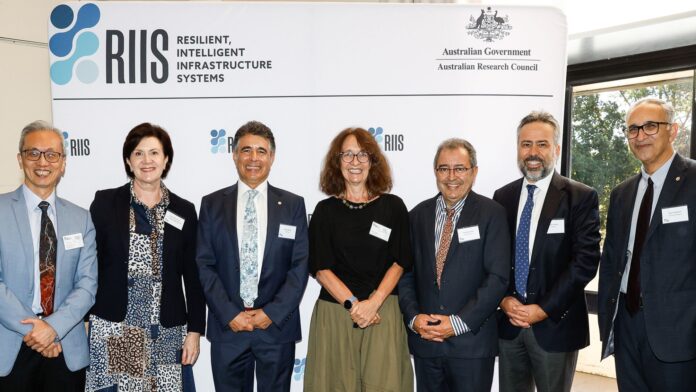
The new ARC Research Hub for Resilient and Intelligent Infrastructure Systems (RIIS) has opened at UNSW Sydney, intending to improve infrastructure systems in the urban, energy, and resources sectors.
The RIIS Research Hub, directed by UNSW Scientia Professor Nasser Khalili, will integrate breakthroughs in sensor technology, connectivity, data analytics, machine learning, robotics, smart materials, and reliable models to meet Australia’s essential infrastructure requirements.
UNSW, The University of Melbourne, Queensland University of Technology, Western Sydney University, and 13 industry partners will contribute to the new Hub’s strength in engineering and science research.
“This investment enables strong and practical collaboration between top researchers and industry partners focused on deploying innovative and integrated technologies to improve urban infrastructure, transport, water, resource, and energy management,” the Australian Research Council (ARC) Deputy CEO Dr Richard Johnson said.
According to Dr Johnson, this will assist Australia by identifying innovative methods to strengthen the country’s infrastructure.
“The research hub also builds Australia’s research capability, linking highly experienced researchers from across a number of universities and providing opportunities for new and emerging researchers to work with them on innovative solutions with industry partners,” Dr Johnson added.
The ARC will spend $4.9 million in the RIIS Research Hub over five years, with $20 million in funding and in-kind assistance from UNSW and other academic and business partners.
UNSW Deputy Vice Chancellor, Research and Enterprise Professor Nicholas Fisk stated that the R&D ecosystem was undergoing a paradigm change towards collaborative and multidisciplinary team activities, as opposed to traditional patterns of solitary trader discipline-specific investigator research.
“The Hub really is an exemplar of this high-tech transformative approach to translate research with industry to commercial outcomes, which through its success will go on to benefit this nation and beyond,” Prof. Fisk said.
The commercialisation of the technology is projected to establish new manufacturing sectors while boosting the productivity and competitiveness of the infrastructure sector and associated manufacturing businesses. This has the potential to produce more than 80,000 jobs in the mining, oil, and gas industries alone by 2030.
The RIIS Research Hub will contribute to the development of sustainable infrastructure systems that are planned, designed, built, operated, and decommissioned in a way that ensures economic, financial, social, and environmental (including climate resilience) sustainability throughout the infrastructure lifecycle.
“Our aspiration is to make a step change in the way infrastructure is designed, constructed, monitored, managed, and maintained. As we all know, significant advances have been made in digital technologies in recent years, to the extent that they now touch every facet of our lives. They have the potential to revolutionise infrastructure and engineering in ways that we could not have imagined even a few years ago,” Prof. Khalil said.
The Hub, which was started in July 2022 during COVID lockdown times, is now being unveiled as major advancements are being achieved in its research and development program, with 16 work packages now completed in the Hub.



















